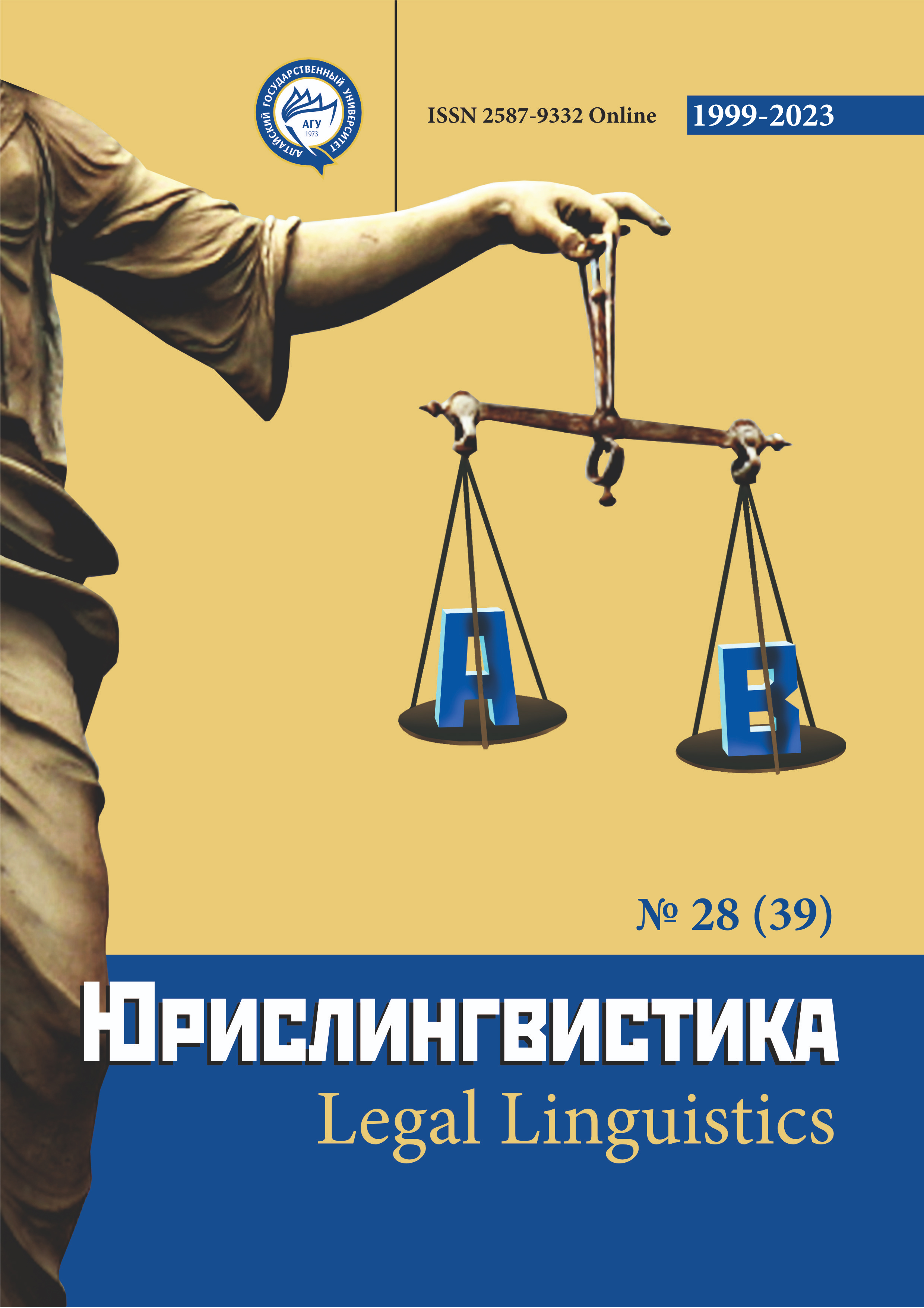Challenges at Сlassifying Acts of Religious Feelings Defamation
УДК 343.42, ББК 67.408.1
Abstract
The article concentrates on the study of the special features of the disposition of paragraph 1 of article 148 of the Criminal Code of the Russian Federation from the legal and linguistic point of view. The article describes the problem of the legislator using subjective and evaluative categories when determining the objective and mental elements of the analyzed crime. The authors draw attention to the issue of linguistic ambiguity of some terms which leads to the problems with the classification of a crime. It happens because law enforcers don’t have enough legal methods for the correct interpretation of the actions of the person who is accused of committing an act of crime. Evaluative character of such categories as “publicity”, “feelings”, “believers” and “defamation” doesn’t let correctly differentiate offences and crimes specified in paragraph 1 of article 148 of the Criminal Code of the Russian Federation from some other crimes and offences specified in both the Criminal Code and the Code of the Administrative Offences. The article is a case study of paragraph 1 of Art. 148 of the Criminal Code of the Russian Federation. The specific features of the acts that are classified as defamation are studied. The authors focus on differentiating defamation from blasphemy, religious hatred and hostility. The authors make assumptions about improving the legislation pertaining to religious feelings defamation. In particular, they put forward the idea to enshrine the interpretation of some terms in the Russian Federation Supreme Court Decisions or in the special note to Article 148. clarifying some categories, which can make classifying acts as crimes easier for the law enforcers.
Downloads
Metrics
References
Астапов С. Н. Осквернение сакрального: казус «Тангейзера» / Южный полюс. Исследования по истории современной западной философии. – 2017. – №3 (1). – С. 5-11.
Астапов С. Н. Религиоведческий аспект экспертизы по делам об оскорблении религиозных убеждений и чувств / Теория и практика судебной экспертизы. – 2017. – №12. – С. 98-103.
Воронин В. Н. Уголовный закон на страже чувств верующих / Законодательство. – 2018. – №12. – С. 54-59.
Доронина С. В., Кащаева М. В., Трубникова Ю. В. Оскорбление религиозных чувств: обыденное сознание и правоприменение / Юрислингвистика. – 2022. – №24. – С. 45-52.
Казанцев Д .А. К вопросу об уголовно-правовой охране религиозных чувств верующих / Российский следователь. – 2019. – № 9. – С. 37.
Кузнецова Н. Ф. Уголовная ответственность за нарушение общественного порядка. М., 1963. С. 9.
Магерамова Ю. Ю. Правовые и лингвистические противоречия в трактовке понятия «оскорбление» / Научный диалог. – 2018. – № 7. – С. 93-102.
Петухов К. В. Правовой статус верующих: его уголовно-правовое значение / Российский следователь. – 2015. – № 14. – С. 38-42.
Copyright (c) 2023 Анна Боженова, Владислав Ерахмилевич

This work is licensed under a Creative Commons Attribution 4.0 International License.
The authors, which are published in this journal, agree to the following conditions:
1. Authors retain the copyright to the work and transfer to the journal the right of the first publication along with the work, at the same time licensing it under the terms of the Creative Commons Attribution License, which allows others to distribute this work with the obligatory indication of the authorship of this work and a link to the original publication in this journal .
2. The authors retain the right to enter into separate, additional contractual agreements for the non-exclusive distribution of the version of the work published by this journal (for example, to place it in the university depository or to publish it in a book), with reference to the original publication in this journal.
3. Authors are allowed to post their work on the Internet (for example, in a university repository or on their personal website) before and during the review process of this journal, as this may lead to a productive discussion, as well as more links to this published work (See The Effect of Open Access).











